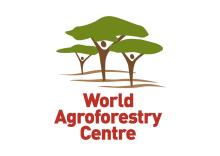Resource information
The United Nations General Assembly declared 2021 to 2030 as the decade of ‘ecosystem restoration’, signalling a global consensus on the urgency to restore degraded lands. Restoring degraded lands is critical to regain lost ecological functionality that underpins life-sustaining ecosystem services, such as the provision of food, fresh water, and fibre, and the regulation of climate, natural disasters, and pests. Indeed, restoration is fundamental for meeting the triple goals of tackling the climate crisis, reversing biodiversity loss, and improving human wellbeing. Regreening Africa (2017 to 2022) is part of a larger global and regional effort to reverse and halt land degradation, which is being implemented in eight African countries: Ethiopia, Ghana, Kenya, Mali, Niger, Rwanda, Senegal, and Somalia. It is funded by the European Union and implemented by World Agroforestry (ICRAF), in partnership with five international non-governmental organizations (NGOs): World Vision, Oxfam, Care International, Catholic Relief Services, and Sahel Eco. It seeks to (a) directly reverse land degradation among 500,000 households across one million hectares of agricultural land in the eight sub-Saharan African countries; and (b) catalyze a much larger scaling effort to restore tens of millions of hectares of degraded land across the continent. Purpose This report presents findings from Regreening Africa’s baseline survey. The purpose for undertaking the baseline survey was threefold: 1.To generate baseline data required to later assess the programme’s local-level socio-economic and biophysical impacts, as well as the extent of household and community-level engagement in land restoration. 2.To identify critical factors in the policy and institutional environment (including those relevant to targeted tree-based value chains) that need to be addressed to unlock the scaling-up of cost-effective and impactful land restoration practices. 3.To generate evidence to inform the design and scaling up of land restoration efforts. Reversing, or at least reducing, the challenges that threaten our life on this small planet has never been more important. Headlines in news media remind us of this every day, in addition to numerous scientific reports and journals. One of the biggest of these challenges is environmental degradation in all its manifold ways. If we can find ways to successfully and sustainably reverse the effects of land degradation in Africa, we would be reducing the most important existential threat to people on the fastest growing continent in the world. Restoration makes eminent economic sense, as the Bonn Challenge has reminded us – the net benefits of restoring 350 million hectares by 2030 would exceed USD 170 billion. The challenge is to get this done in a way so as to satisfy multiple goals simultaneously because otherwise, as history shows us, early successes lead to failures as soon as funding spigots are turned off. And funds for restoration remain scarce. Making the invested Euro stretch farther and with multiple benefits, while restoring – or ‘regreening’ – one million hectares of farm and pastureland across eight sub-Saharan African countries is the challenge set by the European Union to the Regreening Africa partnership. It’s a partnership of organizations that approach development from three different perspectives – policy, implementation and research. This project is about catalyzing meaningful, transformative change by moving people to ‘regreen’ or restore their landscapes so that they benefit now and their children continue to reap benefits in the future. It’s a unique attempt to use processes of structured learning, underpinned by scientific research, to inform an adaptive, iterative system of delivering better development outcomes. In this project the research partner, World Agroforestry (ICRAF), also plays the lead role in programme implementation in partnership with five international non-governmental organizations (NGOs): World Vision, Oxfam, Care International, Catholic Relief Services, and Sahel Eco. The countries where this bold and innovative effort is taking place, thanks to the support of the governments concerned, are Ethiopia, Ghana, Kenya, Mali, Niger, Rwanda, Senegal, and Somalia. The report presented here takes to heart the adage, ‘you cannot manage what you cannot measure’, because it stipulates the need to measure holistically so as to manage holistically. The result is unique, innovative, and informative: a rounded picture of how things stand at the starting point of the project, as can be expected from any baseline study. But it goes further, because it is also an expression of soaring ambition – to deliver on multiple, meaningful objectives simultaneously. In this it is unique. The report draws on recent advances in geospatial and agroecological sciences, the world’s best repository of knowledge on the keystone role of trees in agricultural systems, as well as fields such as behavioural economics and social sciences. From remote sensing, through smartphone-based apps, to ‘boots-on-the-ground’ truth-seeking, this report represents our best understanding of how to establish a launch pad for restoring landscapes by mobilizing people – ‘moving’ their social capital – into a regreening movement that works to better their livelihoods and restore their ecosystems. The report would be worth studying just for its articulate and precise explanation of regreening, and to see how far we have to go to restore these landscapes. But it offers much more: a glimpse of what could be a changed world for people in these landscapes when the project completes its work programme in 2022, and the bold vision of the European Union in establishing this project pays off.



